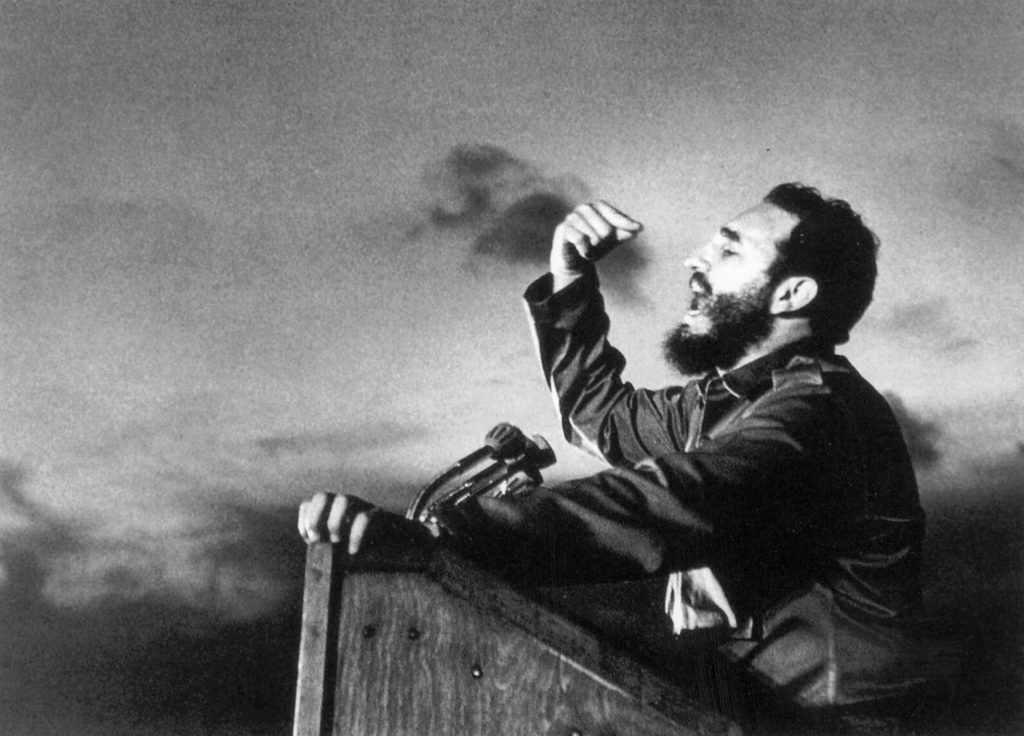We must assume the phrase “I am Fidel” in practice, as the best tribute to the person who showed us that the only option we should never contemplate is surrender, writes Miguel Cruz. This article first appeared in Granma, the daily paper of the Communist Party of Cuba.
Interrupting the solemnity of the moment, like a wave gaining strength, the clamour rose and little by little the Plaza de la Revolución became a single voice chanting: I am Fidel. It was Tuesday, November 29, 2016 and the people of Havana, representing all of Cuba, had gathered there to pay tribute to our undefeated Comandante who had departed to immortality.
As we joined the collective affirmation, one after another, the emotion grew, expressing our urgent need to make clear that the man, who so many times had raised his voice in this same spot, would never leave us. His legacy would endure forever. It was only right and opportune to make the statement there, and repeat from one end of the island to the other, that we would be like him, that we would stand in his place. But have we fully understood what this means?
Fidel requested, practically demanded, that after his departure no monuments be erected in his honour, and insisted that his name not be used with rhetorical bombast. He would only have welcomed this slogan, if we intended to make its practical expression our own, and do what each of us is called upon to do, with the same strength, confidence in victory and sense of duty he put into every one of his endeavours.
One cannot be Fidel and remain aloof in the face of something poorly done or accept indifference; one cannot be Fidel and ignore the needs of the people, without listening attentively and joining them in a daily effort to move forward; one cannot be Fidel if, when duty calls, we opt for the side where we can live better and, from our individual comfort zone, look upon collective urgencies from afar, entirely self-centred at a time when only solidarity saves.
Neither can we be Fidel if we damage unity, which is and will be our principal defence against continuous attempts to crush us. Nor can we let down our guard against enemies that regularly change faces and methods, but never their annexationist or neocolonial intentions.
To be Fidel, in the full meaning of such a strong statement, it is necessary to understand that here and now, we need the resourcefulness and strategies that allowed him to overcome adversities and limitations of all kinds. Today the challenge is Covid-19, as at any moment it could be a hurricane, a drought or more brutal blockade sanctions, along with aggressive attacks of all kinds, but in all cases, if we maintain the conviction to act as he did, defeat will be impossible.
We have many examples of how it is possible to be faithful to this symbolic oath that is “We are Fidel.” Just look at the boundless dedication of the country’s leadership, with the President at the forefront, confronting every problem; the impressive work of our scientists who have known no rest; the tenacity and humanism of doctors who do not give up; the successes of our athletes that fill us with pride; those who produce and sow, and the thousands of young people who are present and contributing where they are most needed.
We must repeat the phrase again and again, and we must assume it as the best tribute to the person who showed us that the only option we should never contemplate is surrender.
Miguel Cruz



